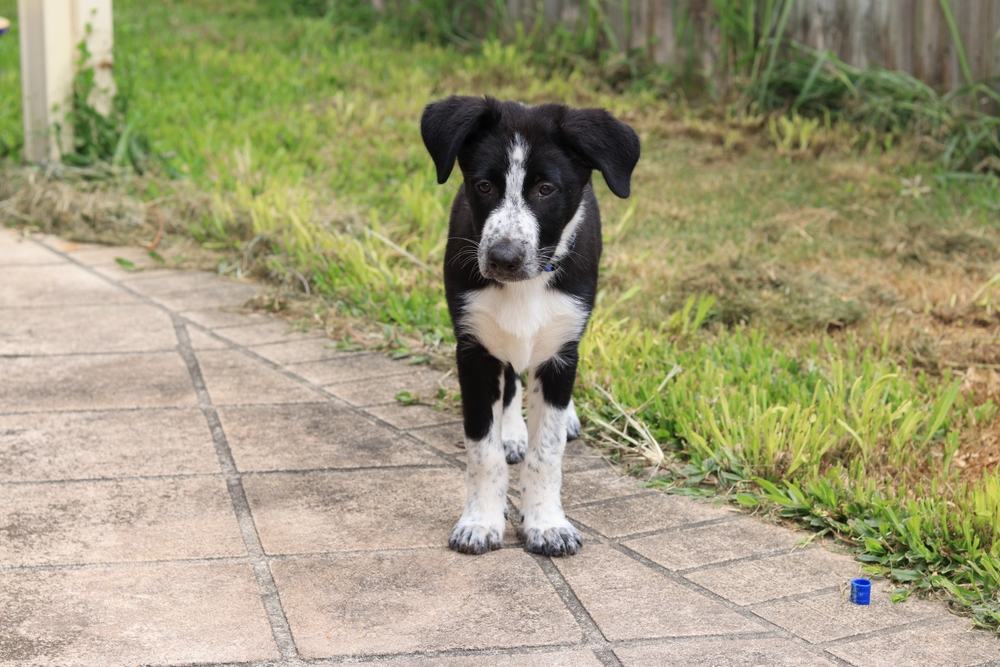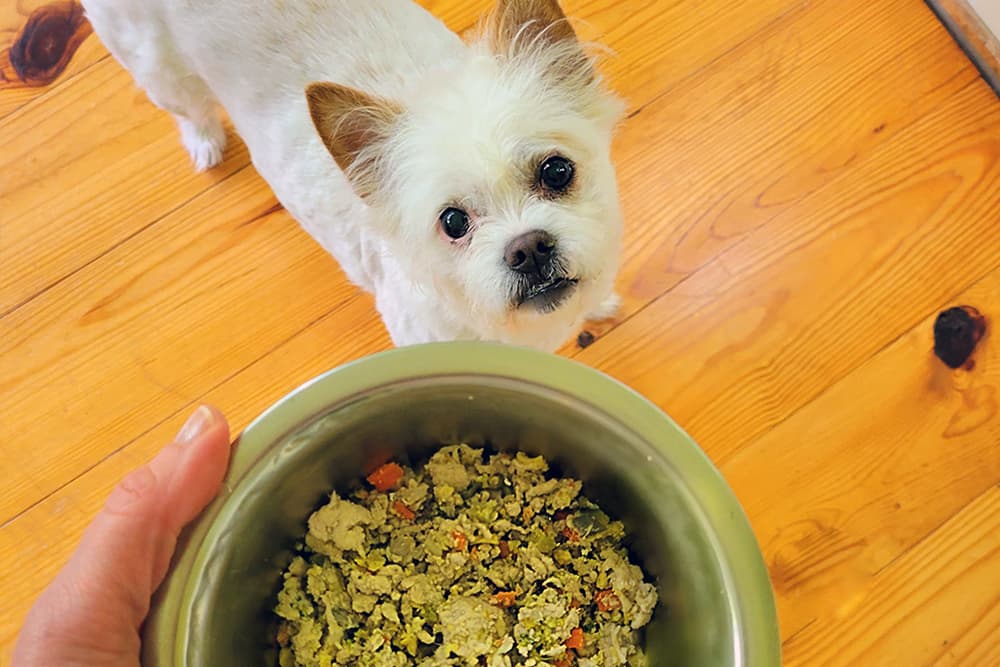Your Puppy: What to Expect at 4 to 6 Months
Updated on May 07, 2024

Your furry friend is growing up. In human years, your puppy at 4 to 6 months would be between 6 and 10 years old, depending on her breed. And like her human counterparts, she’s playful, curious and perhaps even a little willful. Here’s what you can expect over the next few months.
All featured products are chosen at the discretion of the Vetstreet editorial team and do not reflect a direct endorsement by the author. However, Vetstreet may make a small affiliate commission if you click through and make a purchase.
Your Puppy at 4 to 6 Months
As your puppy reaches this exploration stage, you’re in for a treat. Your puppy is like an explorer, so be sure to socialize them properly. Their personality will begin to bloom, which means you’ll see more confidence and curiosity. Here’s what to expect in this critical time of your puppy’s life.
Physical and Mental Development
By 5 months, your puppy’s house training should be well established, and she should be able to wait longer between trips outside. She will average four to six trips daily and gradually decrease to three or four as she enters adulthood.
During this period of physical development, your dog will mature sexually. By 5 months old, a male puppy can produce sperm; by 6 months, a female is able to have her first litter. If you don’t plan to breed your dog, talk with your veterinarian about spaying or neutering your puppy as soon as possible.
Spaying or neutering your pet will eliminate the risk of an unplanned pregnancy, reduce roaming tendencies, and lessen many unwanted aggressive behaviors, as well as help prevent the development of many common reproductive cancers. It is highly recommended that you spay your female dog before her first heat to obtain some of the associated health benefits.
During the next several months, your puppy will begin to lose her baby, or deciduous, teeth. They fall out to make way for her adult teeth. You might find them on the carpet or lodged in her favorite chew toy, or you may not find them at all. Offer appropriate chew toys to ease her teething. An ice cube treat may be greatly appreciated now.
Your veterinarian will monitor your pet’s mouth to make sure all of the baby teeth fall out. Sometimes pets suffer from a retained deciduous tooth. This simply means the baby tooth didn’t fall out. The veterinarian will remove the tooth to prevent infection and make room for the adult tooth.
Behavior Changes
Your puppy at 4 to 6 months will start demonstrating her independence at this stage. She may be less eager to please and more likely to test the rules. She’s also enjoying a big dose of hormones that may cause willful or rebellious behaviors — just like a teenager.
Your potty-trained puppy may start having accidents in the house. Be patient and consistent, and reinforce training. You may want to keep an enzymatic stain and odor remover on hand such as Rocco and Roxie.
Puppies 12 weeks and older may benefit from a daily supplement such as Great Poop Total Digestive Support probiotic chews. Chicken flavored and made with prebiotics, probiotics, and enzymes help your puppy get off to the right start. Always check with your veterinarian when adding anything new to your pup’s diet.
Health and Nutrition
At your next veterinary appointment you should discuss spaying or neutering your dog. Your precious puppy may still look babylike, but she is rapidly reaching sexual maturity. Not only will this prevent pregnancy and reduce roaming instincts, but it will also reduce or eliminate your female’s risk of mammary, ovarian, uterine and cervical cancer and your male’s risk of testicular cancer.
Additionally, there are concerns with intact male and female dogs that may limit how they can be boarded when you are on vacation, or whether they can participate at play sessions or dog parks. You should consider all of these factors when making the decision to spay or neuter your dog.
Depending on your dog’s breed and hair coat, she may need regular or even daily brushing to remove unwanted hair and prevent mats. Choose a brush designed for dogs and use this grooming time to bond with your young dog. She may also shed or need regular trims to keep her fur healthy and manageable. She will also require regular baths to keep her smelling sweet. Be sure to keep their nails trimmed.
Bathing frequency will depend on your dog’s breed and other lifestyle factors. Ask your veterinarian for grooming recommendations and for advice on selecting the right shampoo for your pet. Avoid using shampoos designed for people, because these may dry out her sensitive skin.

Your dog’s teeth also need special attention, and now is a good time to create a toothbrushing routine. You can gently massage her gums with gauze, or purchase a toothbrush and toothpaste designed specifically for dogs. Don’t use human toothpaste. Your dog will likely swallow it instead of spitting it out, and the fluoride in your toothpaste can make her sick.
Sometime in these couple of months your veterinarian will probably vaccinate your dog against rabies, in accordance with your state’s laws. This vaccine (and several other core vaccines) will need to be repeated after one year, as directed by your veterinarian.
Health Insurance for Puppies
Purchasing puppy health insurance early can help offset costs associated with veterinary care as your dog ages including spay and neuter surgery, puppy vaccinations, and veterinary wellness exams. Plus, we all know that puppies like to chew on everything! It’s better to be prepared than to be hit with an unexpected bill for an intestinal obstruction or a chipped tooth!
See quotes from pet insurance companies in your area by clicking on the map below:
Training Tips
Good news: Your puppy is trainable! And her rambunctious attitude proves she needs it now more than ever. Between nipping, potty training, bolting, barking and jumping, you may feel exhausted by your restless little one before the day even begins.
A regimented training schedule will help combat your frisky friend’s boundless energy. Try to practice with your puppy every day for about 10 minutes, and make it fun so she looks forward to some one-on-one time with you. Some basic commands your puppy at 4 to 6 months is ready to learn include sit, stay, heel and no. You will also want to practice walking on a leash.
Expert animal trainer Brandon McMillan teaches dog training techniques in his MasterClass. As the Emmy-winning host of television’s “Lucky Dog” show, you can learn at your own pace from the comfort of home.
At home, practice is critical, but it’s also a good idea to enlist some professional help. Ask your veterinarian for a recommendation for an obedience course near you. If you are considering skipping this important step, think again.
Dogs who know the rules are happier pets, and trained dogs are less likely to be relinquished to shelters later because their bad behavior comes between them and their family. Training classes also provide a good time to socialize, both for you and your dog. You will get the chance to commiserate with other dog owners, and as we all know, “misery loves company.”
You may need energy drinks to keep up with your supercharged youngster, but hang in there, and stick to your regular training routine. Patience and confidence will set the tone for a long, happy life together.





